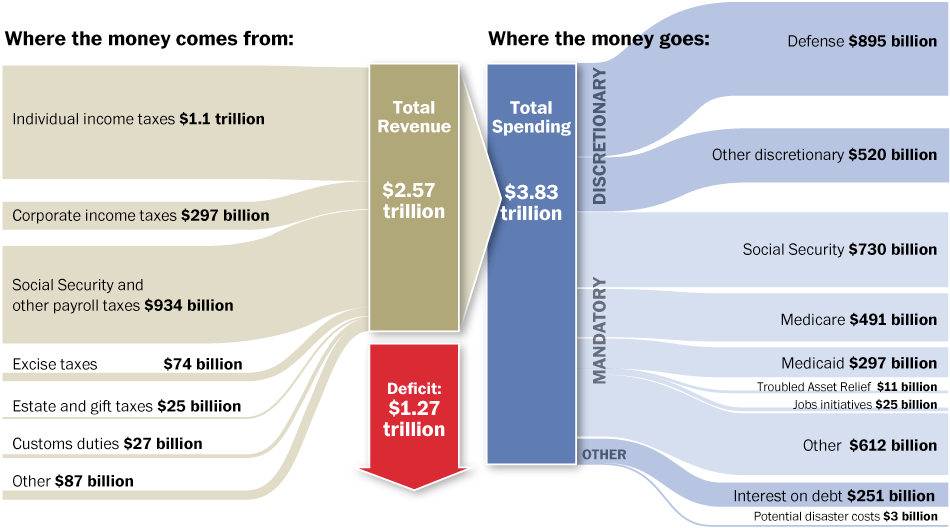In a speech to a closed gathering at the Lowy Institute in Sydney on Thursday, Paul Keating gave a starkly different account of Geithner's record in handling the Asian crisis:


Paulson - The hammer behind the scenes


“We are not dealing with a narrow defined economic crisis or recession. The global financial architecture sustains strategic and national security objectives. In turn, the US-NATO military agenda serves to endorse powerful business elite which relentlessly overshadows and undermines the functions of civilian government….The meltdown of financial markets in 2008-2009 was the result of institutionalized fraud and financial manipulation. The “bank bailouts” were implemented on the instructions of Wall Street, leading to the largest transfer of money wealth in recorded history, while simultaneously creating an insurmountable public debt.”
“There’s no excuse today for lack of leadership. The truth is we all need to be part of the solution.”Apparently Immelt’s idea of being part of the solution is to ship as many jobs overseas as he possibly can.
As the administration struggles to prod businesses to create jobs at home, GE has been busy sending them abroad. Since Immelt took over in 2001, GE has shed 34,000 jobs in the U.S., according to its most recent annual filing with the Securities and Exchange Commission. But it’s added 25,000 jobs overseas.GE is supposed to be creating the “jobs of tomorrow”, but it seems that most of the “jobs of tomorrow” will not be located inside the United States.
At the end of 2009, GE employed 36,000 more people abroad than it did in the U.S. In 2000, it was nearly the opposite.
Rather than setting off a boom in the U.S. manufacture of replacement lights, the leading replacement lights are compact fluorescents, or CFLs, which are made almost entirely overseas, mostly in China.But GE is far from alone in shipping jobs and economic infrastructure out of the United States. For example, big automakers such as Ford are being very aggressive in China. Ford is currently “building three factories in Chongqing as part of $1.6 billion investment that also includes another plant in Nanchang”.
As you pass the city limits a blanket of gloom, neglect and cheapness descends. The buildings are shabbier, the paint is faded. The businesses, where they exist, are thrift shops and pawn shops or wretched groceries where the goods are old and tired. Finding somewhere to have breakfast, normally easy in any American city, involves a long hunt. ‘God bless Detroit’, says one billboard, just beside another offering the alternative solution: liquor.You can see some really shocking images of the decline of Detroit right here.
A year ago I had a job, we were struggling, but bills were getting paid, and somehow we were getting by. Then I made the mistake of getting sick, one day before my company insurance kicked in. An auto-immune illness almost killed me, if it weren’t for the amazing efforts of my physicians and an emergency spleenectomy, I would not be here.As the United States continues to bleed good jobs, stories like the one you just read are going to become much more common.
My wife would have been a single mother,raising two young sons, one of which is autistic. Instead, I pulled through. The disease damaged my liver, leaving me with a chronic condition, and even after a year, it is hard to get up and go some days. My “employer” dumped me as soon as I left the hospital, and I haven’t worked since. It isn’t for lack of looking. There just isn’t anything.
Oh, I get my government cheese money. Here I am college educated, unable to find something that can pay the bills better than the money that we get from the government. It sickens me to be this dependent on the system like this. But the system de-incentivizes work, and makes living on the dole make a perverse economic sense.
I used to have dreams, but I have given up on them. My wife and I have no savings, we have no life raft and if it weren’t for the generosity of her parents and mine, things would have ground to a halt a long time ago.
I believed every thing adults told me. Work hard, I did. Get an education, I did. Find a nice girl and settle down, I did. Two cars, a dog, a cat and couple of kids, a nice townhouse…the american dream. Yep.
I love my country. My heart is broken, broken because I have been betrayed. I did what you asked, I played by the rules. I did what you said to do; I submitted, I conformed, I stopped dreaming. Now what?
I am willing to pay for my faults and transgressions; my failures are my own, I get that. My children should not have to suffer for my failures, they did not do anything wrong. My youngest boy is autistic, we hope he will be able to integrate into society, but the fact is we may have to take care of him for the rest of his life. How do I do this with nothing, and no opportunity in the foreseeable future?
Depression, stress…yep, I’ve got all that. I used to be hopeful and optimistic about the future. Now all I am is afraid.
For 26 years, all budget legislation that would trigger across-the-board cuts if Congress fails to meet a fiscal target has exempted the basic low-income (or “means-tested”) entitlement programs from those cuts. The Gramm-Rudman-Hollings laws of 1985 and 1990, the deficit reduction agreement of 1990, and the Balanced Budget Act of 1997 — all bipartisan pieces of legislation — included that exemption. So did last year’s “pay-as-you-go” law, which requires Congress to offset the cost of new tax cuts or increases in entitlement programs so they don’t increase the deficit. Congress has never enacted a law with an across-the-board cut mechanism that subjects core assistance for the poor to these cuts.“In an exercise in political cynicism,” CBPP notes that both bills include an exemption for payments to Medicare providers that was not part of previous laws. This allows Republicans to avoid another hit from the senior community “even as they subject those living below the poverty line to the risk of automatic cuts that would push them even deeper into poverty.” Earlier this week, CBPP put out an analysis showing that Boehner’s debt ceiling plan “could well produce the greatest increase in poverty and hardship produced by any law in modern U.S. history.”
But in the last few weeks, House Republicans have advanced two major pieces of legislation that would do just that. Both the “Cut, Cap, and Balance Act,” which the House passed last week, and the new Boehner debt-ceiling proposal drop all of the low-income exemptions that have been part of every previous across-the-board cut mechanism since 1985.
 The agenda seems to be to push for raising the debt limit ceiling to save this once great nation’s AAA credit rating — but what does a AAA credit rating mean if you go totally broke later and fall even harder?
The agenda seems to be to push for raising the debt limit ceiling to save this once great nation’s AAA credit rating — but what does a AAA credit rating mean if you go totally broke later and fall even harder?The 14th Amendment states: “The validity of the public debt of the United States, authorized by law, including debts incurred for payment of pensions and bounties for services in suppressing insurrection or rebellion, shall not be questioned.”This is the new tactic that the powers that be plan on using to obtain their goal (create more debt).
Obama stated the other day that “Any solution to avoid the default must be bipartisan, supported by both parties and the American people, not just one faction.”But yet one faction (Obama and the powers that be) will use Executive Orders to get this passed.
One person (or should I say sheep) said, “The country had a perfect credit rating and now they want to ruin it”.But what would extending the debt really do, but bring us more into debt, more into trouble as stocks and paper money dwindle to nothing.


 The company has set aggressive growth plans in Africa, Asia Pacific and India, the opening of these 2 new facilities is important for them is realising this strategy for growth in one of the world’s most dynamic regions.
The company has set aggressive growth plans in Africa, Asia Pacific and India, the opening of these 2 new facilities is important for them is realising this strategy for growth in one of the world’s most dynamic regions.